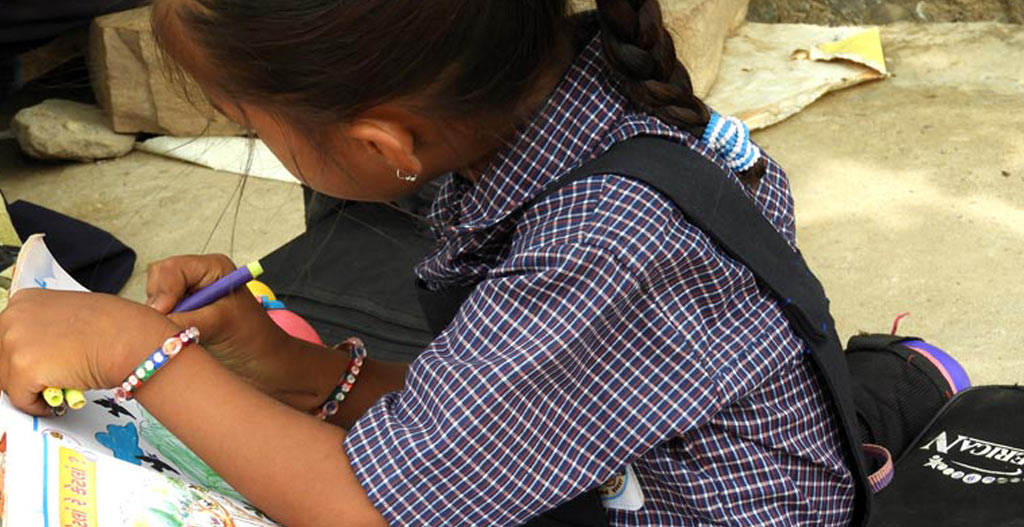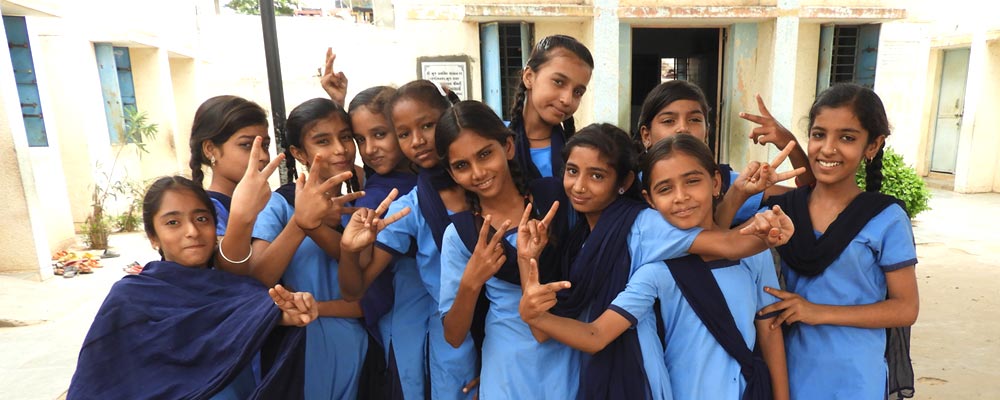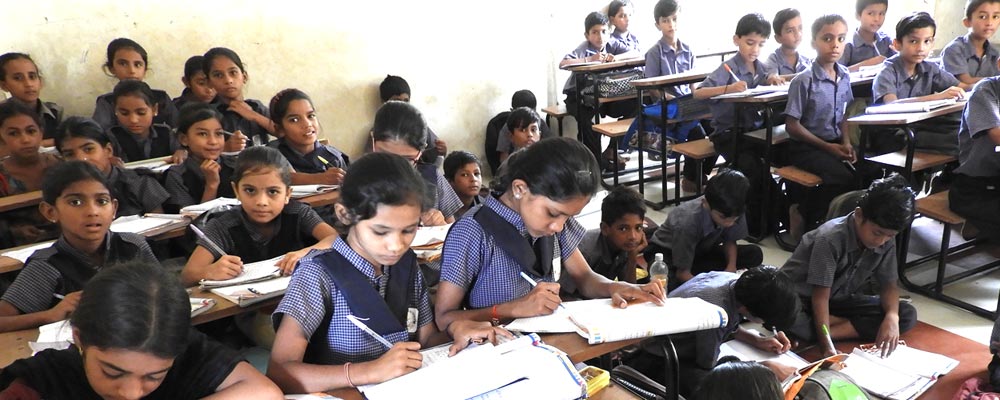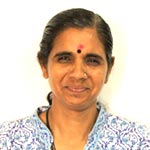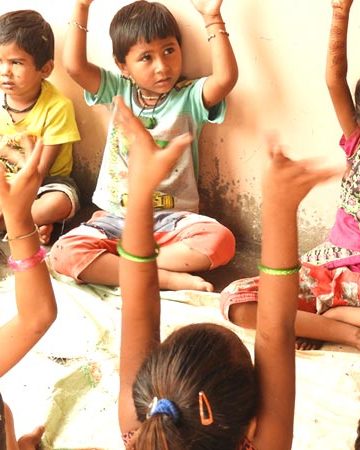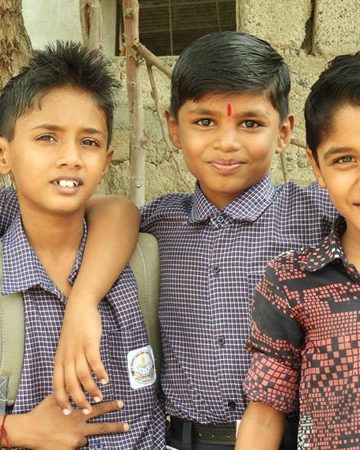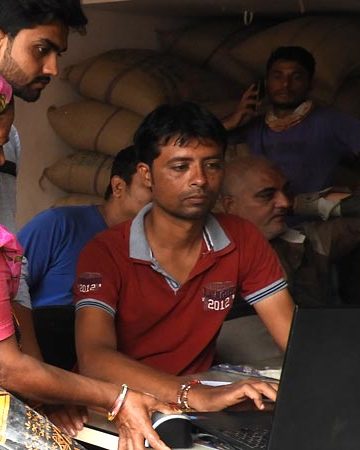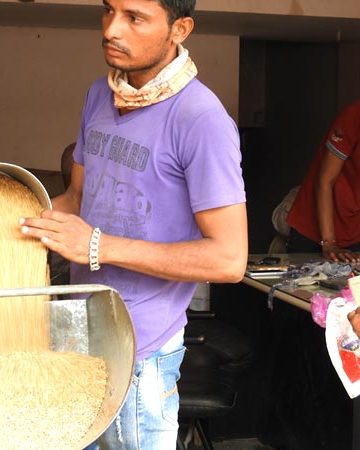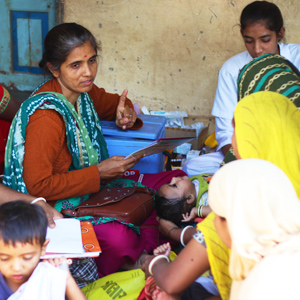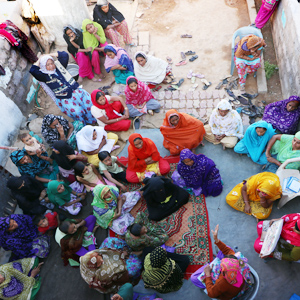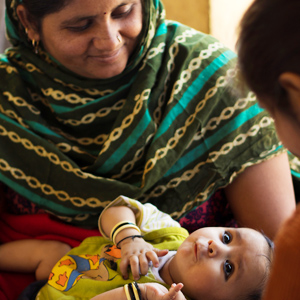SUMMARY
The National Food Security Act, 2013 recognizes the right of every citizen to have access to basic nutrition. It especially emphasizes the need for pregnant mothers and children to be fed well. It recognizes that a healthy nation is a prerequisite for growth, prosperity, and happiness. Though India has had many programs for providing food to the poor for many decades, the Act legitimises this as a right.
However, successive governments have not been able to implement the programs without corruption and leakages. In our slums, a considerable number of the people access their rights. As a social worker of KMVS, stories of sickness, ill-health and its consequence amongst the women and children of Sakhi Sangini, the urban women’s collective we have organized, always angered and frustrated me. I decided to ensure that all our families in Sakhi Sangini, especially the pregnant women and young children be well fed by accessing their rights. I discussed this with the leadership of Sakhi Sangini and they agreed. We decided to focus on three programs of the government be delivered properly in our slums; PDS, the Public Distribution System that ensures subsidised grains to the poor, the national programme of nutritional support to education more commonly known as the mid-day meal scheme (MDMS) and the integrated child development services (ICDS) that ensures nutritional support for pregnant mothers and infants.
Here is a list of the activities I have taken up to address this issue:
Presently, this public monitoring system is working in 15 slum pockets where 14 Anganwadis for MDMS, 8 primary schools and 6 PDS Fair Price Shops have been targeted. This monitoring work is being executed with the support of 28 women trained social activists from Sakhi Sangini.
ABOUT THE FELLOWSHIP
There are various schemes running in our country but most of them are not properly executed due to various reasons such as awareness among citizens, lack of information about schemes, lack of a proper mechanism that monitoring services delivered to beneficiaries. However, this fellowship was designed in the response of SHG members who were often complaining in their meetings about the quality of education and food served to their kids in Aanganwadis and Primary Schools and quality as well as the quantity of ration provided by Fair Price Ration shops set-up under PDS. Actually, these were genuine problems in poverty pockets that rose by the SHG members. Therefore, meetings were organized with SHGs and they were informed about service benchmarks set for Aanganwadis, Primary Schools, and government ration shops. A set of formats having symbols which can easily be understood by an illiterate person were developed and SHG members were asked to monitor and fill these formats for Aanganwadis, Primary Schools and Ration Shops in their areas. After 2-3 months of regular monitoring, there were huge gaps identified between services provided and services that these institutions were supposed to be provided. SHG members started creating pressure on school teachers and shop owners to provide services as per benchmarks set by the government. Initially, school teachers and PDS owners resisted demands of SHG members but due to their consistent demand and approaching higher level officials and informing them about these discrepancies, they were forced to improve services. However, it was not easy to monitor services because SHG members were facing resistance from school teachers, Aanganwadi workers, and PDS owners. In few incidents, the shop owner tried to blame SHG workers for creating unnecessary nuisance but honesty, proper monitoring, liaising with local residents ultimately pushed these service providers to improve the quality of services. Here, quality of services conceptualized keeping consideration of different parameters for different services as mentioned below:
Presently, this pubic monitoring system for Anganwadis, primary schools, and government ration shops set-up in 15 poverty pockets where 14 Anganwadis, 8 primary schools, and 6Fair Price Shops are running. This monitoring work is being executed with the support of 28 trained Cadres. Most of the leaders are monitoring in the areas where they reside also.
However, in very short period, due to monitoring and interventions by leaders with the support of beneficiaries, the quality of services in these institutions has improved considerably. But still, there is need to constantly work to achieve the perfectness in service delivery by these institutions in designated areas of the city.
MAJOR OUTCOMES OF THIS FELLOWSHIP SO FAR:
- Improved services in 14 Anganwadis, 6 PDS shops and 8 primary schools in Ward No. 2and 3.
- A cadre of 50 women is prepared for monitoring these services.
- Detail information and regarding material to propagate these schemes and programs are in place.
- A documentary film showing this monitoring process has been made for awareness building in other areas and encourages government for introducing social audit for these services.
WAY FORWARD:
- In addition to the continuation of monitoring of existing14 Annganwadis, 6 fair price ration shops and 8 primary schools, 7 more Anganwadies,2 primary schools and 2 fair price ration shops across five poverty pockets are proposed for same intervention in order to improve the quality of services and service accessibility to more families.
- Workshop with government departments to sensitize government officials for executing schemes in true spirit and to encourage government departments to deliver services efficiently and appropriately.
- Establishment of Anganwadis in coordination with concerned department in deprived poverty pockets.
- Meetings and training workshop for SakhiSangini members in order to create a new Cadre who can monitor public services.
Case study:
Ms. JatRukiya Usman, 42 years, educated up to 6th standard, lives in Pathanfalia at Apnanagar, Bhuj with her husband and three children. Her husband drives a school bus.
Rukiyaben came in touch with Sakhi Sangini a few years ago as she was willing to form SHG in her locality. She gradually motivated to work for the community especially women while started attending meetings and activities of Sakhi Sangini and KMVS and when public services monitoring was going to initiate, she involved for monitoring of Primary Schools, Aanganwadi, and government ration shops not only in the area where she lives but in other areas too. Due to her attempts, services of two government ration shops, 18 Aanganwadis, and six Primary Schools have improved and now these institutions are regularly taking part in the monitoring process. Though initially shopkeepers, Aanganwadi, and school teachers were not supportive towards her efforts but the constant dialogue and regular monitoring and honest efforts changed stakeholders approach towards monitoring and after some time they started taking monitoring process as a positive approach to improvising services.
Rukiyaben became more confident and feels empowered after getting a positive result of this intervention. In an informal conversation, she revealed, “Nothing is impossible for a woman, it gets right direction, support, and opportunity. Even she can make impossible things possible.”
2In India, Anganwadi word used for “Courtyard Shelter”. These shelters were started by the Government of India in 1975 as part of the Integrated Child Development Services programme to tackle child hunger and malnutrition. An Aaganwadicentre provides basic health care activities include contraceptive counseling and supply of nutrition, education, and supplementation as well as pre-school activities.
3Public Distribution System (PDS) is an Indian food security system established by Indian Government under Ministry of Consumer Affairs, Food, and Public Distribution and is managed jointly by Central and State Governments. Major commodities distributed include staple food grains such as wheat, rice, sugar, and kerosene, through a network of fair price shops know as ration shops.

